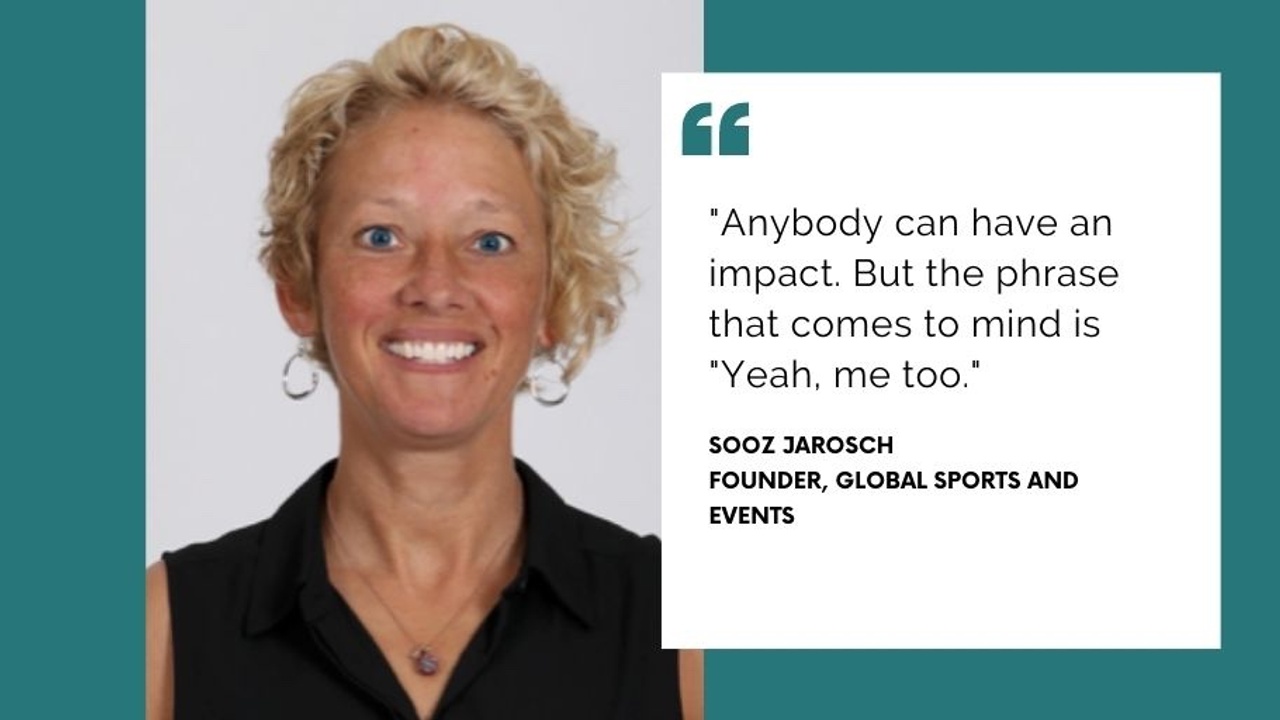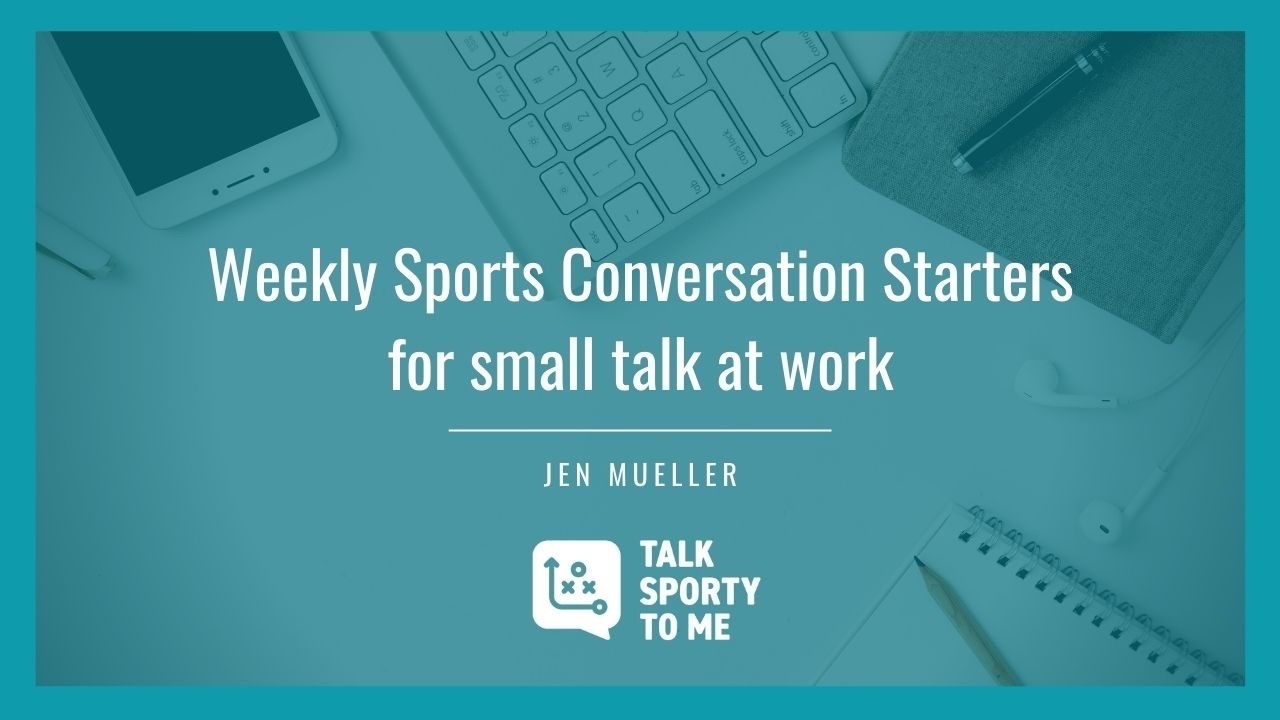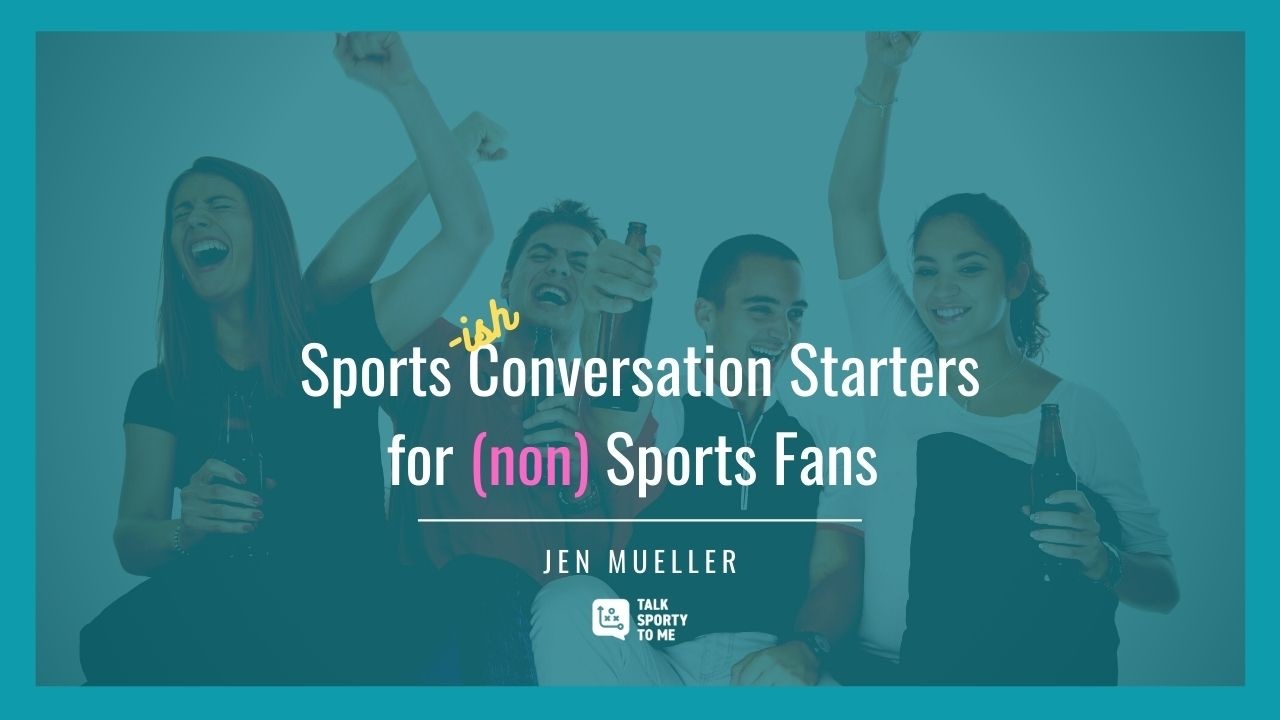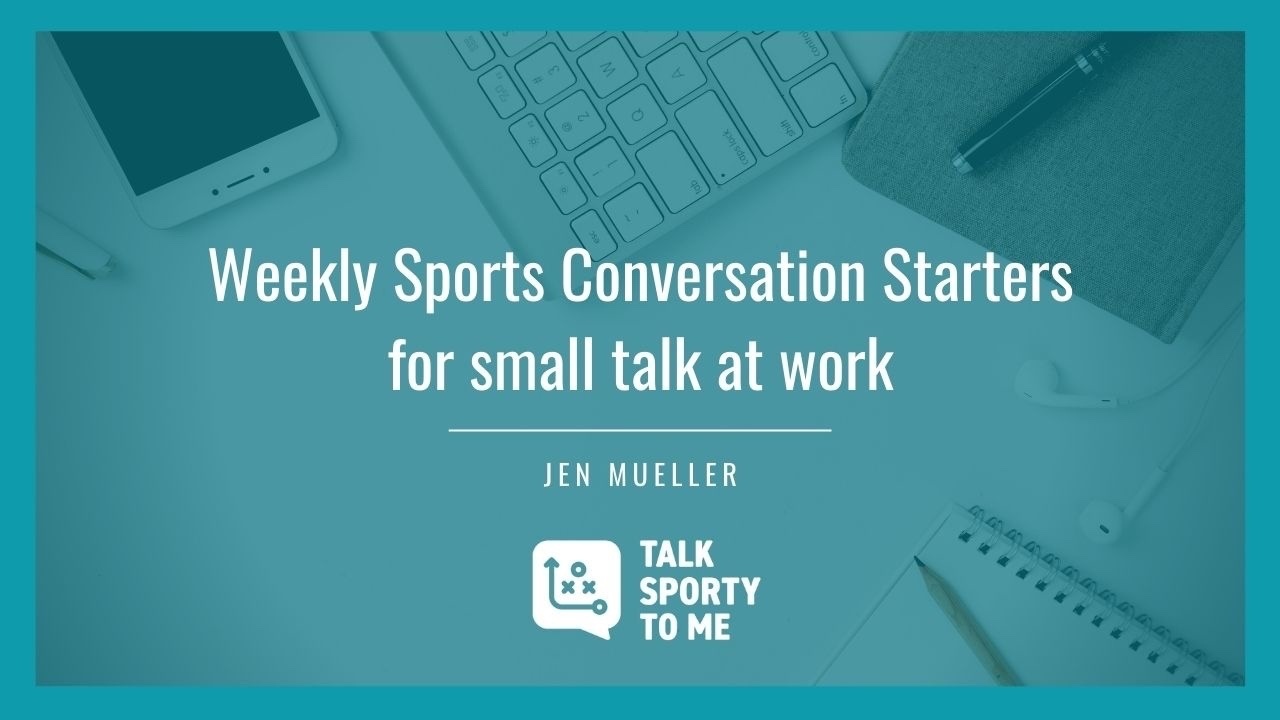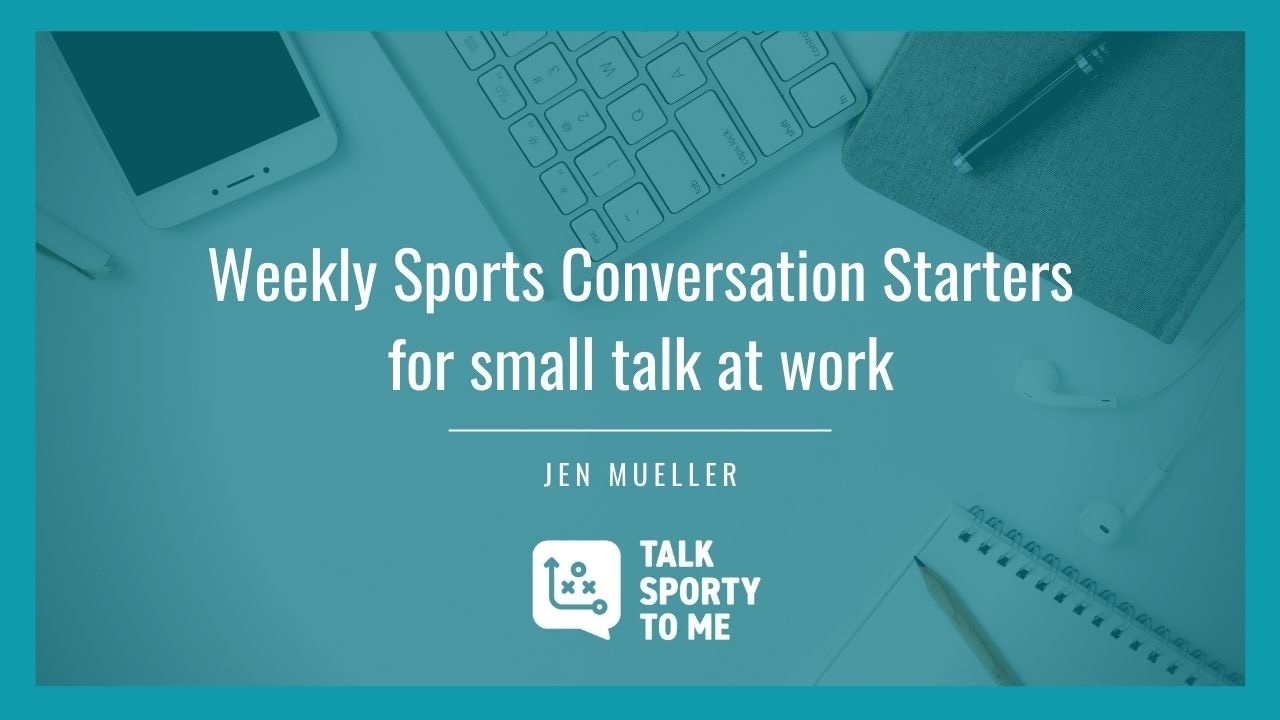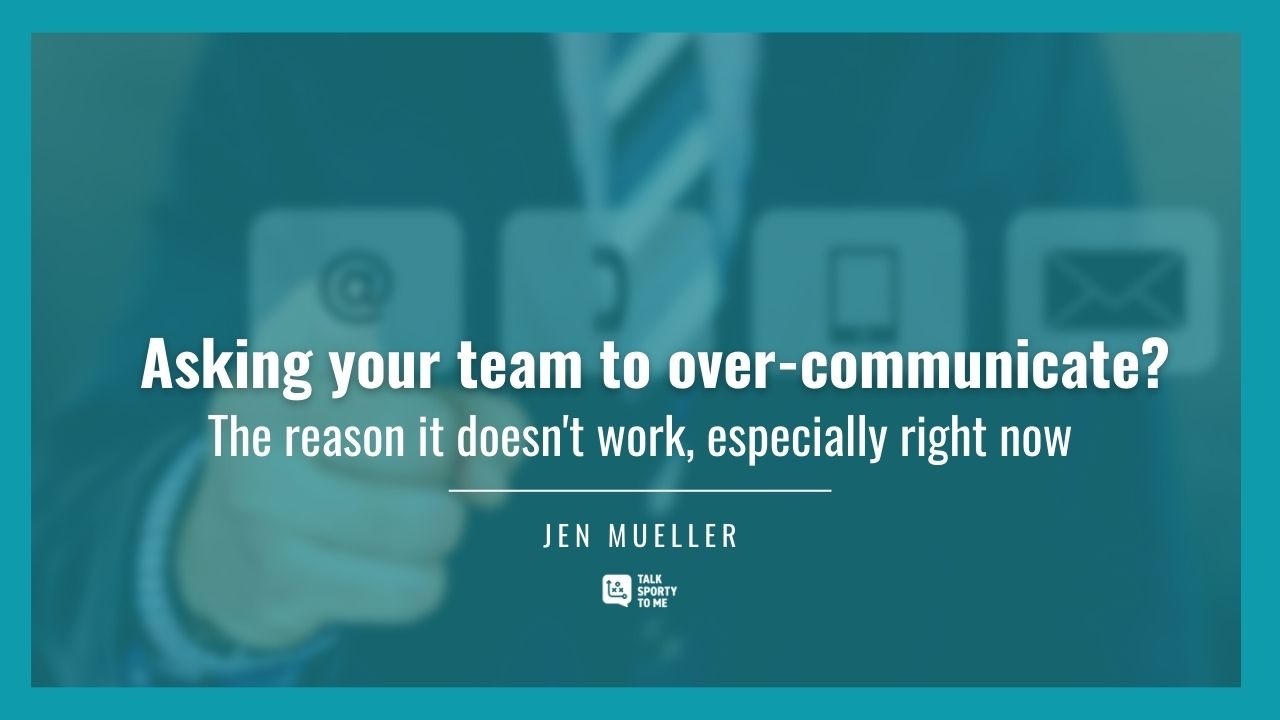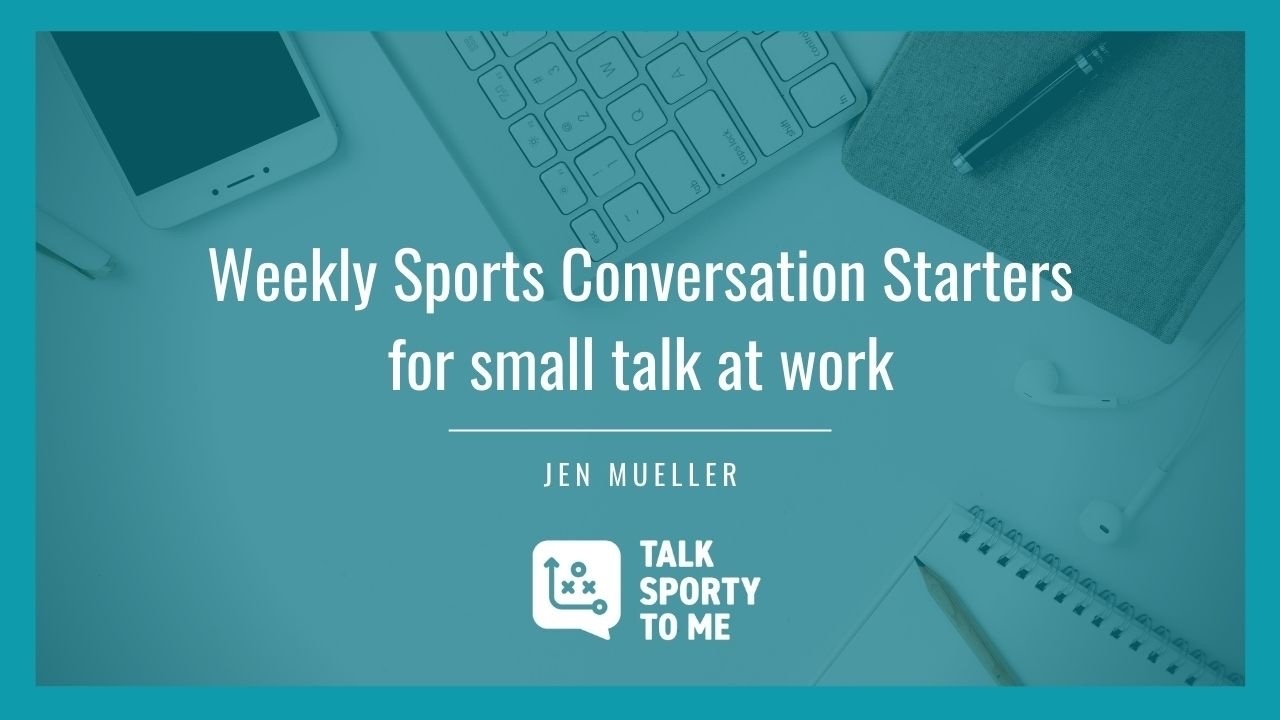Your accomplishments, resume and skillset aren’t the keys to your success. Your ability to communicate is.
Now you might be thinking, “Hold up, what ...
People follow people, not plans.
Your credentials are important for getting the job, but when it comes to leading, inspiring and motivating your tea...
It is a lovely feeling to know you can walk into a room, or log into a virtual one, and say something that will allow you to connect instantly. Footba...
It’s Super Bowl week and the game will dominate a lot of sports, news and entertainment headlines. It’s one of the biggest events - sporting or otherw...
Friendly reminder, this is not the week to ignore sports. Even the most casual sports fan can find a way to engage about the Super Bowl and/or the Oly...
The numbers are staggering.
Sports dominates TV ratings. Just take a look at the numbers. Football accounting for 75 of the top 100 most-watched broa...
There are two sports stories making headlines and getting airtime on major news networks this week – Tom Brady and the Olympics. Even the Weather Chan...
Communication is the foundation for relationships.
Effective communication starts with small talk. The chit-chat you might overlook is actually the b...
It sounds like a good idea, but telling your team to over-communicate with you or each other isn't helping.
Asking your team to over-communicate m...
It’s been a while since I offered specific instructions on how to use this weekly email. In a nutshell, you scan the list, pick a topic and start a co...
I love the idea of a fresh start at the beginning of the... and then the “what if’s” set in. Am I the only one?
The Seahawks closed out their season yesterday… and then depression set in.
I quote that line from Stripes somewhat jokingly at the end of football ...


